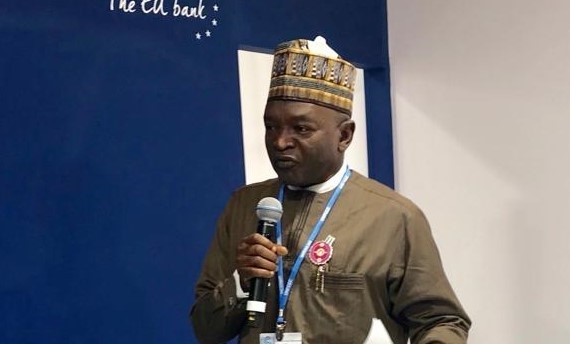The Federal Government on Thursday hailed the United Nations Development Programme (UNDP) commitment to support the country in developing Investment and Financial Flow (I&FF) to effectively address climate change adaptation and mitigation.

Dr Mohammad Abubakar, Minister of Environment, disclosed this in Abuja on Thursday, August 26, 2021 while inaugurating Nigeria’s Long-term Low Emission Vision to 2050, Investment/Financial Flow Assessment Reports and Pledging Conference to support Youth Innovation for Climate Actions in Nigeria.
Abubakar said that the I&FF was for the purpose of conducting an assessment to determine the costs of climate change measures and potential sources of investment funds.
He said that the I&FF document would serve as a guidance note for government agencies as well as private sectors undertaking climate actions.
He added that, by using the I&FF methodology, countries could determine how to organise investment and financial flows efficiently.
According to him, the UNDP is supporting the ministry to developing the I&FF, towards achieving the global commitment in order to properly map resource mobilisation.
“The I&FF is also to aid decision makers to recognise the need for solid information on current and future climate change-related investments and financial flows, as well as their timing, sources and investment entities.
“The purpose of this meeting is to give an update on the progress we have made as a country in our global commitments towards reducing greenhouse gas (GHG) emissions under the UNFCCC process.
“We have submitted the 2021 revised Nationally Determined Contribution (NDC), under the Paris Climate Agreement, to which most of your MDAs made tangible contributions.
“This new submission has recommitted Nigeria to reducing emission by 20 per cent unconditionally but with a slight increase from 45 per cent to 47 per cent conditionally by the year 2030,’’ he said.
The minister said that through the NDC Partnership Climate Action Enhancement Package, the 2050 Pathways supported the ministry to develop its first Nigeria Long-Term Vision 2050.
“The support is as an initial and first useful step towards designing Long Term–Low Emission Development Strategies (LT-LEDS).
“The support provides Nigeria the forum to discuss the opportunities and challenges that may arise in terms of a cleaner, more dynamic, and more sustainable growth model.
“The process also provides the options for the country to implement a less carbon-intensive model of economic development in the face of decreasing global reliance on fossil fuel energy for development practices.
“It is hoped that this vision will promote sustainable development and guarantee a climate proofed economy through multi-stakeholders’ engagement across multiple sectors,’’ he said.
Abubakar said that Nigeria was committed to empowering citizens by engaging in climate actions, through youth engagements, education, training, public awareness, public participation, public access to information and international cooperation.
He commended the youth for their tremendous input into promoting climate actions, adding that the efforts must be encouraged at all levels across the country.
He appealed to all political elites to support the youth for climate innovation and solutions.
“As we launch the National Youth Climate Innovation Hub Reports, pledges and support are expected in all forms to optimise the energy and creativity of the Nigerian youth and make the innovative hub fully functional.’’
Chief Sharon Ikeazor, Minister of State for Environment, said that Nigeria was committed to fulfilling its pledge to combat climate change along with the international community through the Paris Climate Agreement.
Ikeazor said that undertaking such determination would require significant investment from both domestic and international sources with end-to-end contributions from private and public sectors.
“To appreciate the size of the investment that will be required for climate change mitigation and adaptation measure.
“Nigeria, through support from the UNDP, hired experts which included Climate Change Scientists, Data and Statistical Analysts, Economists and Financial Experts.
“The team was tasked with the assessment and analysis of the expected Investment and Financial Flows (I&FF) to achieve the emission reduction targets.
“According to assessment which provides an estimation of costs on capital investment, operations, maintenance, and other financial requirements towards achieving this task albeit starting from a base year of 2015 to 2030 which put the figure required to be $547,035 billion.
She said that the amount was needed to implement priority actions such as ending gas flaring by capturing and commercialising flared gas by 2030.
She said it was also for switching the use of power generators running on premium motor spirit and automotive gas oil towards Liquefied Petroleum Gas/Compressed Natural Gas.
The minister said that it was also for increasing renewable energy generation up to 13GW for grid, mini-grid and off grid connections by 2030.
She said that one of the goals of the government was to incentivise climate actions, creating economic value from the adaptation and mitigation actions that would be undertaken by the public and private sectors.
By Oluwatoyin Akinwande and Vivian Emoni
